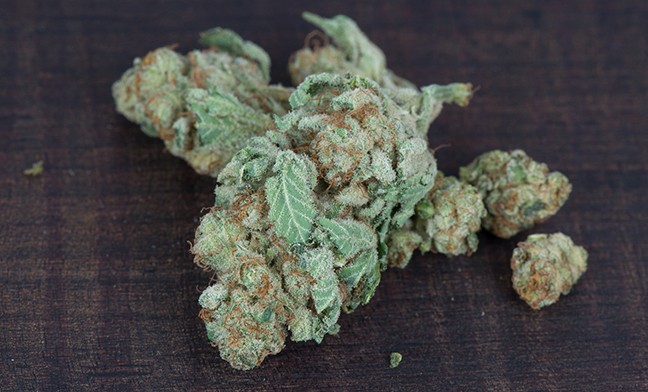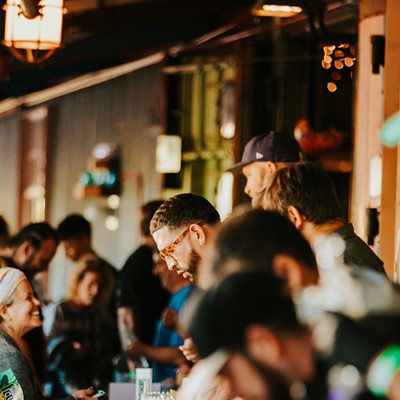As Arizona draws closer to recreational legalization, which could arrive in 2021 if voters were to approve a proposed ballot initiative next year, arguments on both sides are coming to a head. On one hand, we have cannabis hailed as a miracle drug; on the other, an almost certain precursor to schizophrenia.
Extreme arguments on either side do not help us reach the most sensible implementation of recreational cannabis we can achieve. To do that, we have to let our guard down, accept some uncomfortable truths and, essentially, pull our heads out of our asses.
So, let's set some things straight.
1. Cannabis is not harmless
I'm a long-time proponent of cannabis, so I know the attractiveness of touting that cannabis has never killed anyone.
While that's unlikely (surely a few heart attacks result from increased heart rates after smoking, or extreme lapses in judgment lead to freak accidents), cannabis has no known overdoses. It's one of the few substances that do. You can even OD on water.
However, that doesn't mean it doesn't come without risks.
We can admit now that yes, cannabis does have addictive properties. Like every other drug, it won't affect us all equally. Some individuals will have a more difficult time with it than others.
Some people have a more difficult time with alcohol and cigarettes that will eventually kill them than others. Adding another abuseable substance to the mix will be detrimental for some. That isn't something we can ignore.
2. Cannabis doesn't cause suicide
Suicide is always tragic. While I have no children to watch take their own life, I can only imagine it's the greatest pain one can experience, and I have nothing but sympathy for those who do.
It's difficult to find clarity in grief. Suicide is not a simple equation. There is likely no one single factor that causes someone to commit suicide, just like no one single factor is likely to prevent it.
Human life is complicated—perhaps one of the most complicated things in the universe. So it's understandable why some parents try to make sense of it by attributing their losses to a single factor—the one unknown they can identify and point a finger at.
But whenever I read a story about the at-risk youth who spiraled out of control "because of cannabis" (and I read a lot of them) it's always a similar story: in and out of mental health treatment, sometimes graduation to (and even recovery from) other drugs, parents attempting to control every aspect of their troubled child's life.
The common thread here is not cannabis. It's that we—humans, society—have no idea how to handle suicide or how to recognize or address the factors that lead to it.
Which brings us to our next point.
3. mental health treatment is not prepared for
legalization
That fact that some cannabis users were "treated" by the supposed "experts" at mental health facilities is evidence that we're shooting in the dark.
Though we're making progress, how many people still wind up in jail simply because they have mental health problems that we don't recognize or treat correctly?
The prevalence of suicide between the ages of 15 and 24 increased from 11.1 percent to 14.46 percent between 2013 and 2017, per the American Foundation for Suicide Prevention.
It seems like hardly a semester passes that we don't hear about a student committing suicide. Universities across the country have ramped up efforts to address the issues.
One recent study in the Journal of the American Medical Association found that depression in 7 percent of Canadians and Americans between the ages of 18 and 30 is linked to cannabis.
Even without cannabis, suicide and mental health in general are growing concerns that we must determine how to better address. Millennials have largely adopted humor around suicide as a coping mechanism for our seemingly hopeless future. This goes far beyond cannabis.
4. cannabis will be legal
Whether you like it or not, recreational cannabis is coming.
It will improve the lives of hundreds of thousands of people. I've spoken to a lot of people in the industry during my time writing this column, and there is a common trait among almost every one of them: they want to help people.
They have no shortage of stories of people whose lives have been renewed by cannabis. The vast majority of stakeholders in the cannabis industry aren't robber barons seeking the next great fortune. They're just good people who think they can make a difference in the world.
It will be difficult for others. Some people will struggle with addiction and other complications from cannabis use. But at the end of the day, it is not society's responsibility to cater to your needs.
We cannot blame all our problems on external factors. At some point, we must accept responsibility for the hardships we bring on ourselves and others. Only when we can do that will we know we're responsible stewards of our community, our society and our planet.
Until then, we do the best we can.










